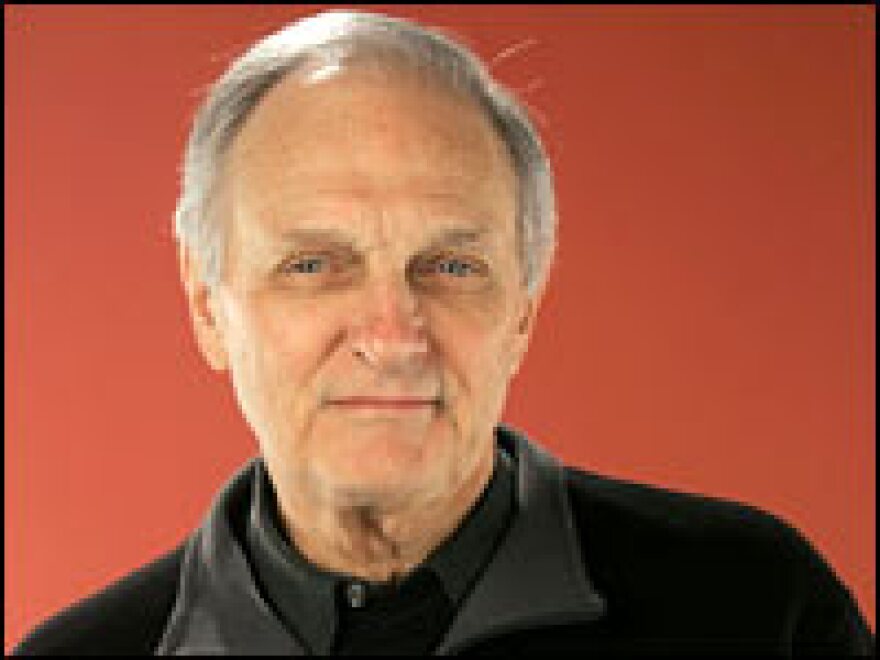
You can probably still see Alan Alda any day of the week just by flipping on the TV. Thirty-five years after the black comedy M*A*S*H began its long network run, everyone's favorite surgeon, Hawkeye Pierce, is still operating somewhere.
Alda has had a rich career — in movies, on Broadway and in another long run, as host of a science program on PBS.
A few years ago, he was up for an Oscar, had won another Emmy, had a happy marriage, kids and grandkids. Then one night, out of the blue, he heard a little voice asking: Are you living a life of meaning?
And to answer it, Alda began sifting through the countless commencement speeches, keynote addresses and eulogies he has given through the years.
Alda has recorded that exploration in his new book, Things I Overheard While Talking to Myself.
Alda often finds himself speaking in front of people he has no business giving advice to. Of course, the former M*A*S*H star gets invited to give commencement addresses at medical school graduations.
"You can understand how I got asked to do that because I played a doctor on television," Alda tells Renee Montagne. "But I didn't think I had any right to talk to doctors just because I played one. So I was scared to do that. But I finally solved that by talking to them about the one thing about medicine that I was an expert in, which was being a patient. And I said, 'Please treat me like a human being.'"
In another out-of-character gig, Alda once spoke to a group of historians at Monticello about Thomas Jefferson.
"The thing is when you're ... well-enough known, you get asked to speak places and they don't really think about whether or not you're qualified. They just want somebody that will be a drawing card for the audience. So it's up to you to decide whether or not it's foolish to get up and speak to these people. And I'm crazy enough to do it because I want that moment of elation when I think I actually could deliver on this.
"It's very scary. And that's somehow, I think, [how] I know I'm alive. I guess some people do that by climbing mountains, but that seems foolish to me."
Early in his book, Alda asks himself this basic question: "If it should happen that you don't wake up tomorrow, will this have been a life that meant something?"
After reflecting on the matter, he says, "It's really a crazy question to worry yourself over. Meaning has come to mean to me a lasting sense of satisfaction, a feeling when you get to the end of it that you haven't wasted your time. And, for me, it's noticing it while it's happening."
Copyright 2023 NPR. To see more, visit https://www.npr.org.



